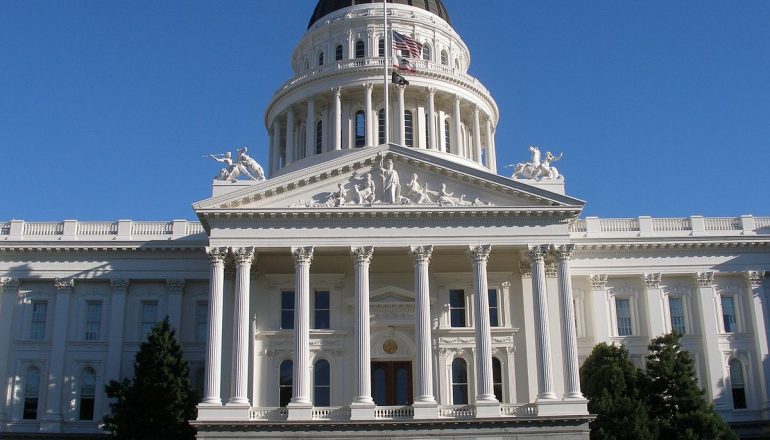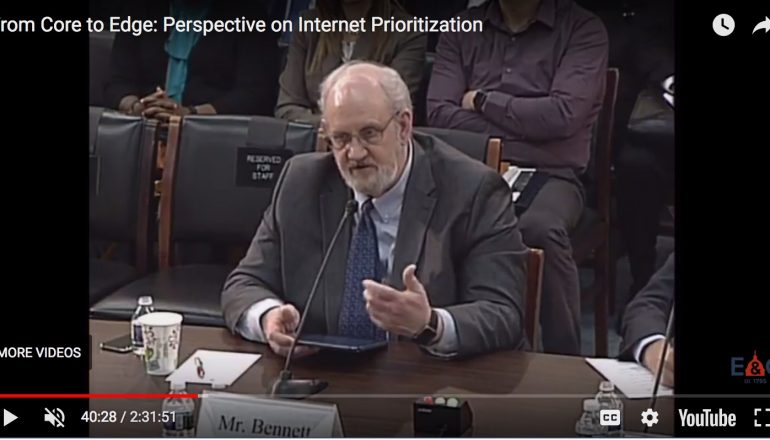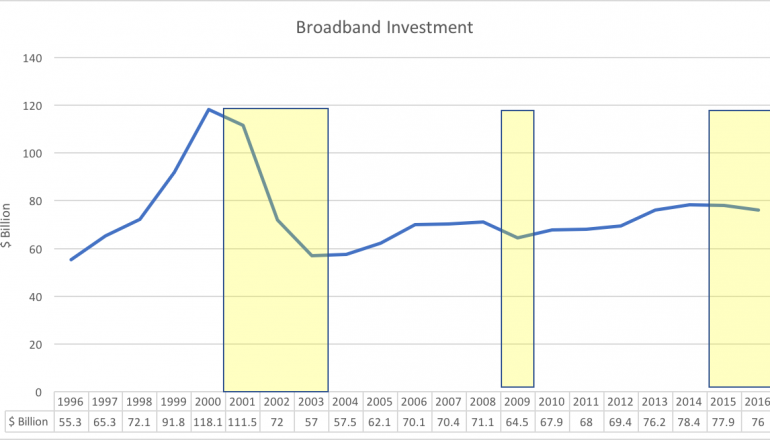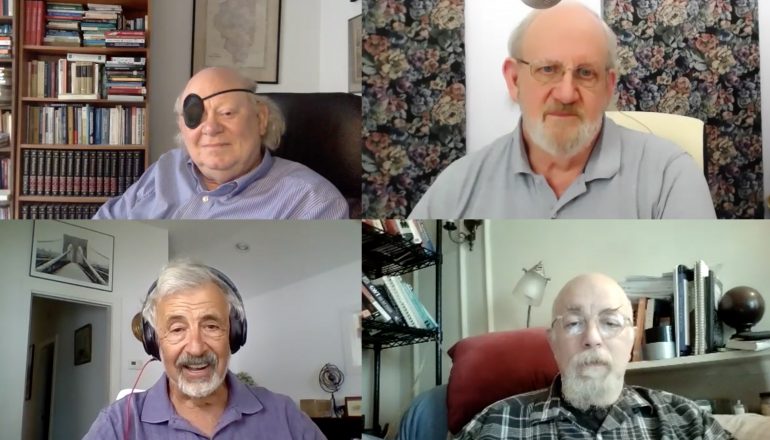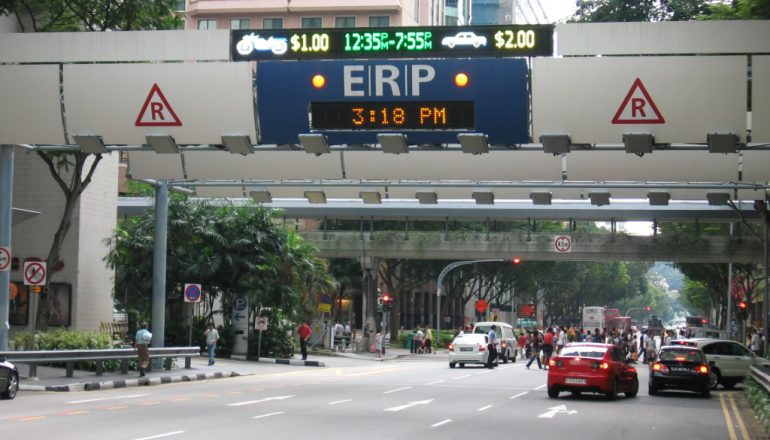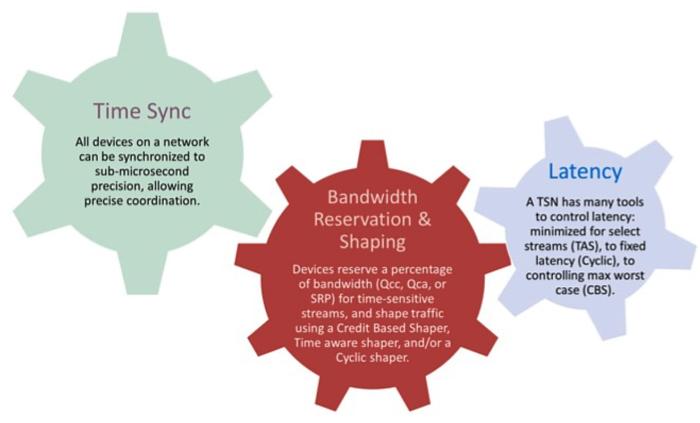Will Rinehart on Broadband Infrastructure and Inclusion
If you’re interested in broadband, competition, digital inclusion, and how public policy moves from idea to appropriation this is for you.
Dude, Where’s My Fast Lane?
Those of us invested in the Internet’s success – everyone who communicates – should focus on finding ways to make it better. Neither Hansen’s bill nor the Congressional Review Act resolution subverting current FCC policy is a recipe for progress.
From the Core to the Edge: Perspective on Internet Prioritization
The Internet is not simply a sandbox for network research any more, it has become the primary means of electronic communication around the world. Before long, it will be the only such means and we will all be better for it. Please allow firms that depend on networking to invest efficiently so as to maximize their incentives to innovate.
Depressing Investment Figures
Figures released by US Telecom on Tuesday showed reduced spending on broadband infrastructure for the second year in a row. While 2014 was the best year for broadband investment since the fiber bubble…
You Get What You Measure
The awesome TPRC Conference starts on Friday this week, at the Scalia Law School at George Mason U. in Arlington. This conference brings academics and policy scholars from around the world together…
Internet Pioneers Discuss Network Architecture and Regulation
Internet regulation is like the Game of Thrones, a battle between parochial interests that ignores the threat of an innovation-less winter.
The Coming Productivity Boom with Bret Swanson
[powerpress] In this edition of the HTF podcast, we talk with Entropy Economics founder Bret Swanson about his recent paper (with Michael Mandel), The Coming Productivity Boom. Swanson sees high…
Congestion Pricing for Infrastructure: I Still Don’t Know Why Net Neutrality is Important
When usage, delay tolerance, and loss tolerance are all unknowns, we fall to an unknown level of quality. While this simplifies billing, it doesn’t do justice to the needs of applications, innovation, or investment.
A side effect of switching from the current billing model to a quality-based model is that the unproductive net neutrality debate summarily ends. When users have control over the end-to-end quality of each application transaction, the means used by the provider to deliver the desired quality are unimportant.
Highly Illogical Broadband Claims
What the FCC can do is help to keep large swathes of the American population from falling behind. And it can do this by saying yes to network deployment and innovation. A good first step in that process is to let go of the vacuous virtuous cycle of networks + apps innovation. That argument is illogical.
Making Time-Sensitive Networks Happen
We need the ability to offer virtual services that use software-defined networking to merge and coordinate diverse applications over the common Internet resource pool. But the regulatory problem needs to be solved by Congress and the FCC before the engineering can create real services




